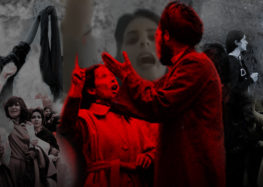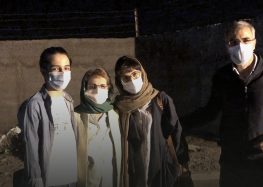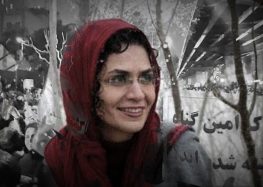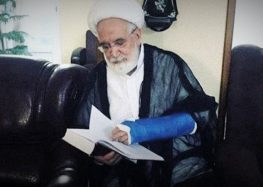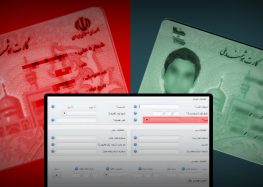Prominent Activists Defy State Ban on Visiting Hospitalized Opposition Leader Mehdi Karroubi
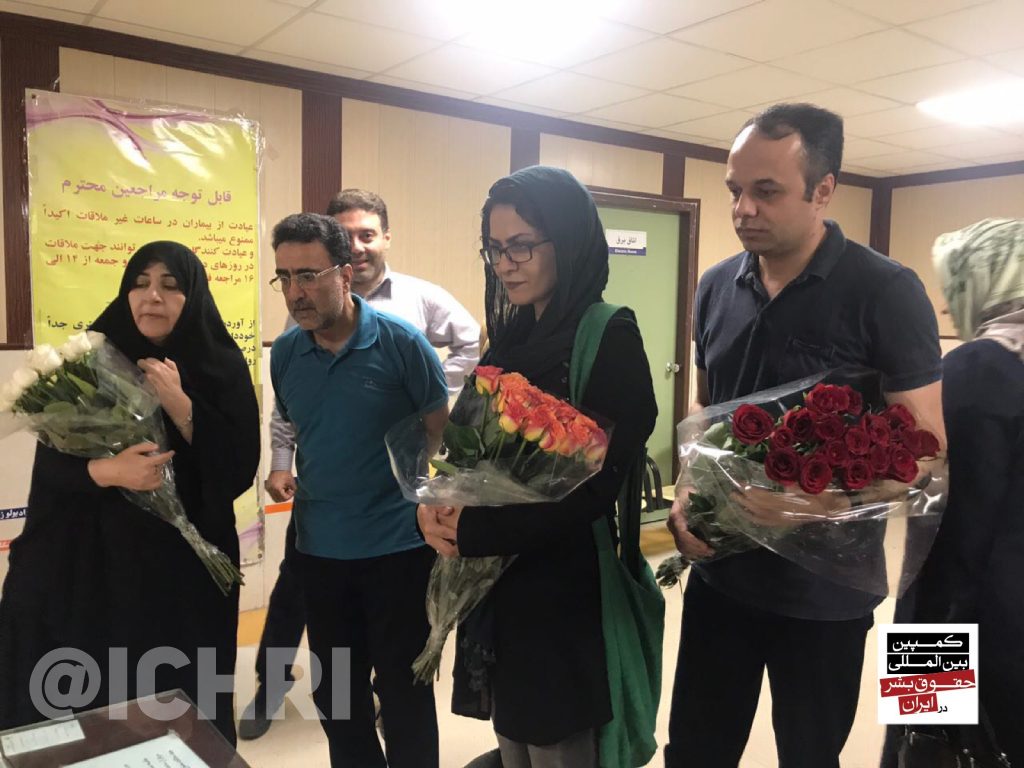
From right to left: Amin Ahmadian, Bahareh Hedayat, Mostafa Tajzadeh and Fakhrolsadat Mohtashamipour at the Rajaei Medical Center in Tehran.
With roses in hand, a group of prominent former political prisoners and civil rights activists defied a state ban on visiting Iran’s detained opposition leaders when they attempted to visit Mehdi Karroubi in the hospital on July 31, 2017.
Karroubi and fellow opposition leaders Mir Hossein Mousavi and Zahra Rahnavard have been under extrajudicial house arrest since 2011 for leading the peaceful mass protests against that year’s disputed presidential election.
The group who visited Karroubi—including former political prisoners Mostafa Tajzadeh, Bahareh Hedayat and Amin Ahmadian, as well as women’s rights activist Fakhrolsadat Mohtashamipour—left the flowers with the hospital guards who prevented them from entering the Rajaei Cardiovascular, Medical & Research Center in Tehran.
Karroubi’s hospitalization on July 24 for low pressure was met with an outpouring of support on social media, with users in Iran renewing their calls for an end to the more than six-year-long house arrests of the opposition leaders.
His family issued a statement on July 31 holding the state responsible for the opposition leaders’ failing health.
“We state unequivocally that alongside the person of the supreme leader and the broken judiciary, the president and the intelligence minister are directly responsible for the lives of those under house arrest,” said the statement.
“The ‘moderate government’ [of Rouhani] may see no need to give priority to responding to the people’s demand to end the house arrests or to create the conditions for the existence of political and civil liberties and free dissidents from prison,” continued the statement. “Nevertheless, it has a duty to respond to the illegal and inhumane actions by its agents, such as a man named Foroughi, who has made it his mission to gradually take the lives of Karroubi and [Mir Hossein] Mousavi.”
Several reformist members of Parliament were turned away after Karroubi’s initial hospitalization. Only close family members have been allowed to visit the 79-year-old former presidential candidate.
Karroubi initially underwent a TIPS procedure on July 26 that corrected a vein blockage in his heart. The non-invasive procedure uses image guidance to create a tunnel through the liver to connect the portal vein (the vein that carries blood from the digestive organs to the liver) to one of the hepatic veins (three veins that carry blood away from the liver back to the heart).
He was discharged on July 28, but within hours his condition took a turn for the worse and he was rushed back to the hospital where he received an angiography on July 31.
The former parliament speaker is currently recovering at the hospital’s intensive care unit.
Karroubi’s family issued a statement on July 31 holding the state responsible for the opposition leaders’ failing health.
Supreme Leader Ali Khamenei has long insisted that the three must “apologize” for their role in the peaceful mass protests of 2009, which were violently repressed by the state, before they can go free.
Despite the fact that the 2009 protests continue to be referred to as the “sedition” by authorities in Iran, Karroubi’s hospitalization and a report that 75-year-old Mousavi’s health is also failing, have prompted reformist politicians to renew calls for them to be released.
“Mr. Karroubi’s heart disease and his transfer to the hospital is a good opportunity to use some wisdom to end this tragic house arrest saga,” tweeted conservative MP Ali Motahari, a longtime supporter of freeing the opposition leaders, on July 24.
In an interview with the Center for Human Rights in Iran (CHRI) prior to Karroubi’s TIPS procedure, his son Mohammad Taghi Karroubi demanded freedom for his father.
“If officials insist that the illegal house arrests should go on, they should heed my father’s suggestion and hold a trial,” he said.
“Mr. Mousavi and his honorable wife have been held in limbo for six and a half years. They are being punished without being convicted,” he said. “The state must end this unlawful situation or hold an open and transparent trial.”
“My father has said he will wholeheartedly accept any verdict issued in such a trial,” he added.

